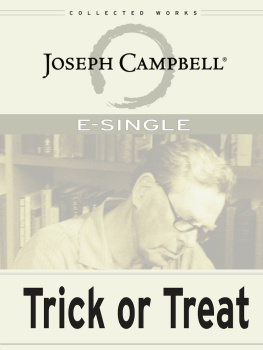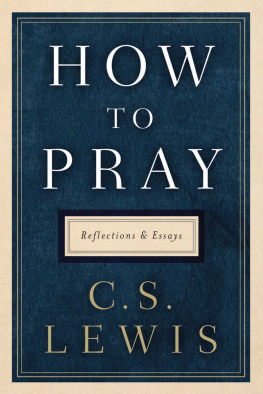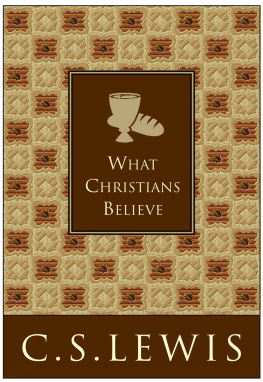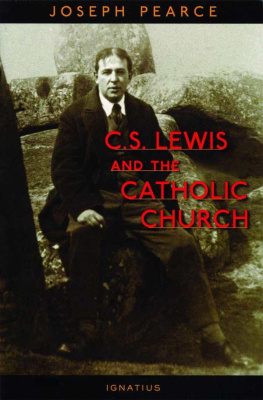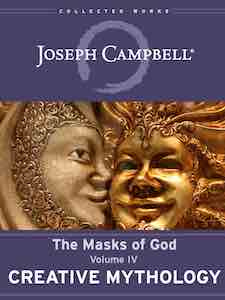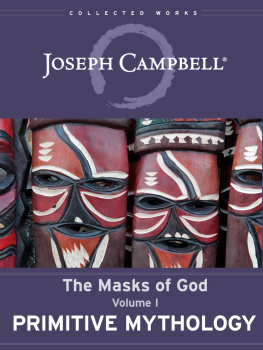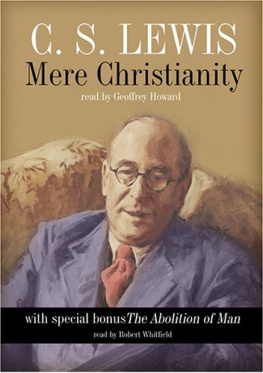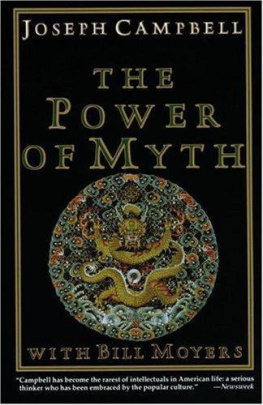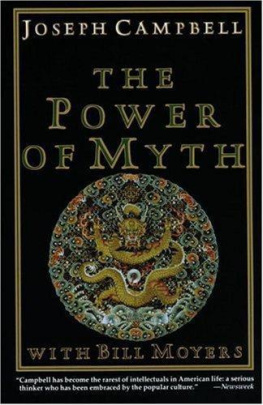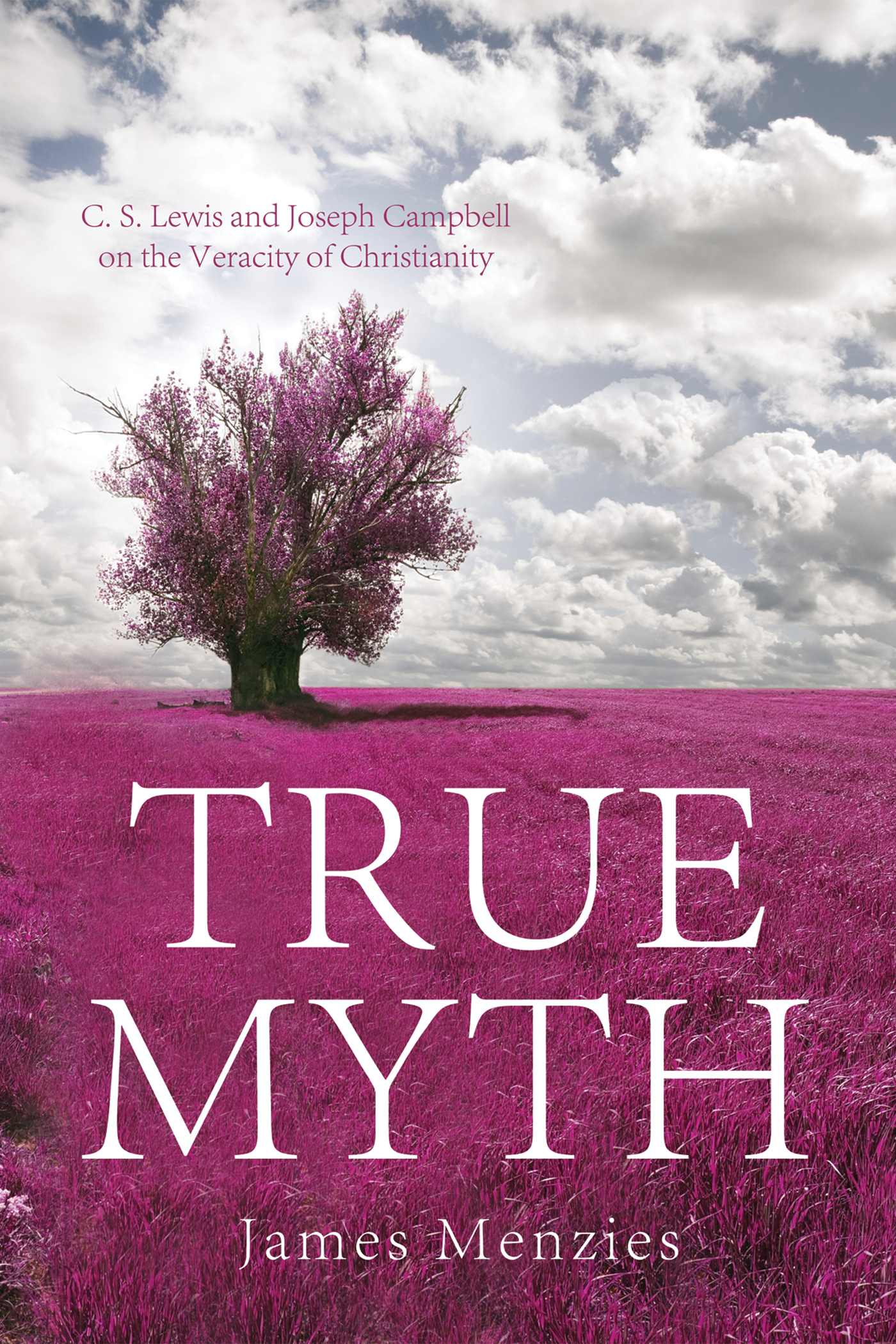True Myth
C. S. Lewis and Joseph Campbell on the Veracity of Christianity
James W. Menzies
Introduction
Need
T his book seeks to answer the question What was the meaning and significance of myth as understood by Joseph Campbell and C. S. Lewis and how did each man apply his understanding of myth to the Christian faith? In the process of answering this question the Christian faith is represented by certain historical doctrines held by the church since its inception as recorded in the Bible; the central record of the early Christian experience and faith upon which Christian doctrines, traditions, and experiences were subsequently built and therefore central in the interpretations of Campbell and Lewis. Attention is also given to the role of myth in a highly technological society as understood by each author.
A question asked by each generation is What does it mean to be human in an age of advanced technology? This book will address the question by exploring not only the thinking of Joseph Campbell and C. S. Lewis regarding myth and religion, but by investigating the influence and presence of myth in philosophy, media, ethics, history, literature, art, music, and religion in a contemporary context. A comparison, analysis, and critique of the perspectives of these two men will enable individuals working in these disciplines to integrate the thoughts of Campbell and Lewis in further reflection upon the relationship between humans and technology in the twenty-first century. For both men, myth held significance, even in a technological society.
Background
Throughout history humanity has pondered matters beyond sensory perceptions. These include hopes, dreams, hunches, intuition, life after death, a realm of spirituality and spiritual beings, and even the thought process itself. But because humans often limit certainty to sensory perceptions, assurance about such things remains elusive. And at those rare moments when someone thinks he or she is closest to certainty, where reasoning is able to make sense of existence, such confidence can collapse by a simple change in circumstances. For instance, at the moment a village is convinced how best to please the gods by thinking, If we offer up our children as a sacrifice the gods will repulse the enemy, tragedy can strike as an enemy breaks down the walls, invades, and conquers, leaving the people to wonder why the gods remain angry. Individually one may be convinced that his or her act of lust or anger certainly must enrage the unknown other but then rewards come. So the question remains: How can I make sense of my existence?
One response to this existential question found throughout primitive and technologically advanced cultures is understanding the role of myth. Throughout human history, myth has served as a source to explain questions of creation and human origins, making sense of tragedy, finding meaning for ones existence, and to help prepare for life after death. And whether one examines indigenous cultures steeped in religion or highly technological cultures espousing many (or no) religions, there is frequently an evidence of myth handed down through generations resulting in ideas and beliefs that intentionally and unintentionally become part of such cultures and societies.
But as universal as myth is, few words are used with more definitions, or with as many meanings as there are authors to offer them. Following the first entry, from the Westminster Review in 1830 , the Oxford English Dictionary has the following definition:
A traditional story, typically involving supernatural beings or forces, which embodies and provides an explanation, aetiology, or justification for something such as the early history of a society, a religious belief or ritual, or a natural phenomenon. Myth is strictly distinguished from allegory and legend by some scholars, but in general use it is often used interchangeably with these terms.
But as traditional and succinct as this definition is, myth appears to be as old as humanity and as profound as the most challenging philosophy.
Further confusing the study are the numerous scholarly writings that each offer their own variation on the term. One dictionary provides the definition,
In popular usage the term... connotes something untrue, imaginative, or unbelievable; or, in older parlance, a purely fictitious narrative usually involving supernatural persons, actions, or events;
Professor of philosophy Tom Snyder comments,
... some myths are grounded in pure fantasy while others convey a strong sense of realism. In the past many scholars identified different kinds of myths, such as creation myths, initiation myths, captivity myths, and trickster myths. Each of these different kinds of myth does different things;
While professor of religion Ian Barbour remarks,
... in popular usage, a myth refers to fictional and untrue tale, so I have come to prefer the term story, since the status of a story is clearly left open
And literary theorist and philosopher Roland Barthes writes,
Myth is not defined by the object of its message, but by the way in which it utters this message: there are formal limits to myth, there are no substantial ones. Everything, then, can be a myth? Yes, I believe this, for the universe is fertile in suggestions.
The scope of usage of myth is so vast that it causes New Testament scholar Richard Soulen to admit, There is, however, no agreed-upon definition, whether in terms of its form (that is, its relationship to fairy tales, sagas, legends, tales, epics, etc.), or in terms of its content and function.
But as Oswalt goes on to point out, the question of definition faces two challenges: We must first ask whether it is broad enough to include all the items that manifestly share the majority of the common characteristics of the class being defined. Then we must ask whether the definition is narrow enough to exclude those items that only exhibit one or two of the common characteristics. This is a major problem with the definitions of myth.
Purtill also categorizes myths into sections or groups. He points out that to some scholars myth is, first, related to gospel , which includes but is not confined to the four New Testament accounts. Yale professor of divinity, Brevard Childs, adds this comment concerning myth and true myth:
Not every story with a reference to a primeval event can be classified as a true myth. In order to be a myth, such a story must bear a truth, that is, myth must relate to the basic structure of being within the world order. This truth consists in a recognition of the life-determining reality which the mythical mind has apprehended in the powers of nature... Such stories concern themselves with the creative acts of power of the primeval age which establish the order of being, such as the discovery of the hunt and agriculture, or the origin of life and death.
So just as science and religion scholar Ian Barbour defines technology as the application of organized knowledge to practical tasks by ordered systems of people and machines, one can perhaps understand myth as the application of faith (or imagination) and reason (or experience) to the practical events of daily life and existence.
The mythological world... provide[s] the individual with a model in order to understand the meaning of his or her existence. For this reason, any mythology must feature an ample range of characters, gods, enemies, places and circumstances to ensure the possibility of a personal relationship, for all the members of the community, to the primordial world.


